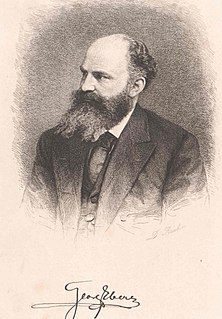A Quote by Murasaki Shikibu
farewell' is a monster among words, and never yet sounded kindly in any ear.
Related Quotes
The ear participates, and helps arrange marriages; the eye has already made love with what it sees. The eye knows pleasure, delights in the body's shape: the ear hears words that talk about all this. When hearing takes place, character areas change; but when you see, inner areas change. If all you know about fire is what you have heard see if the fire will agree to cook you! Certain energies come only when you burn. If you long for belief, sit down in the fire! When the ear receives subtly; it turns into an eye. But if words do not reach the ear in the chest, nothing happens.
The phrase "It's absolutely the same with me, I..." seems to be an approving echo, a way of continuing the other's thought, but that is an illusion: in reality it is a brute revolt against a brutal violence, an effort to free our own ear from bondage and to occupy the enemy's ear by force. Because all of man's life among his kind is nothing other than a battle to seize the ear of others.






































